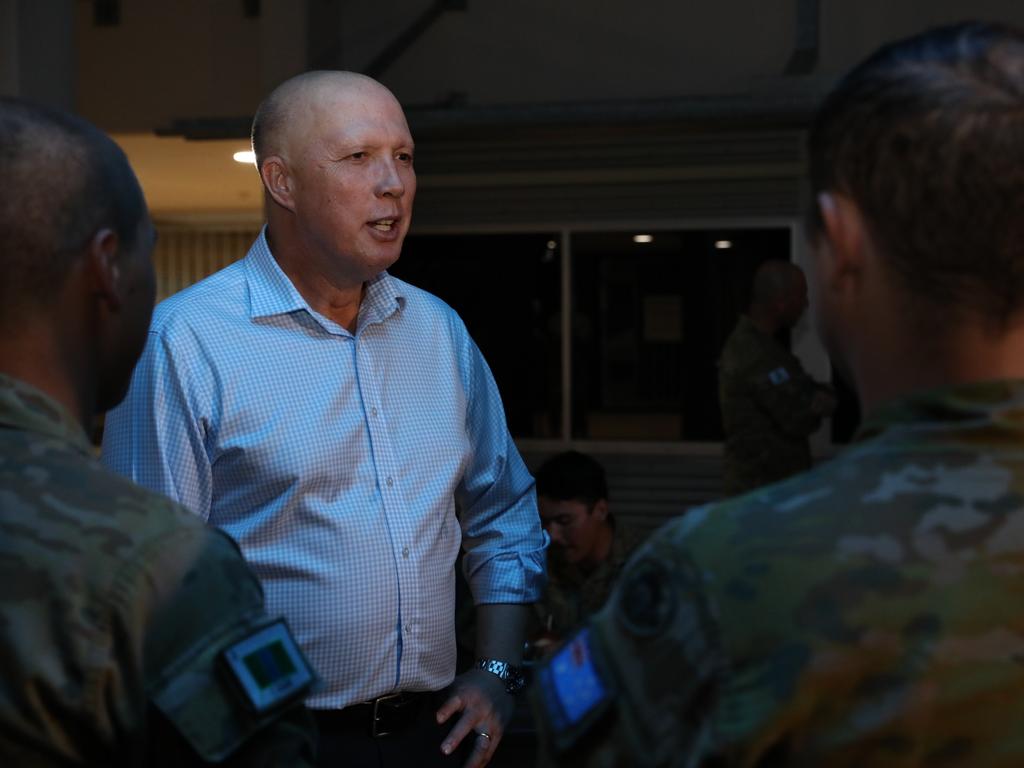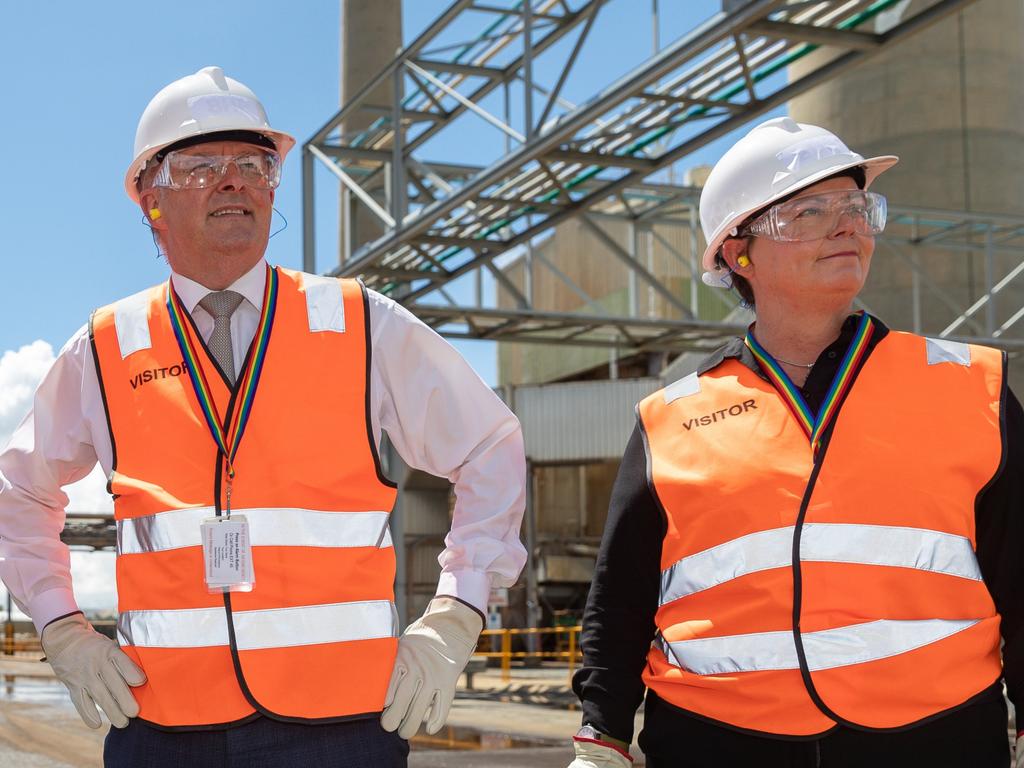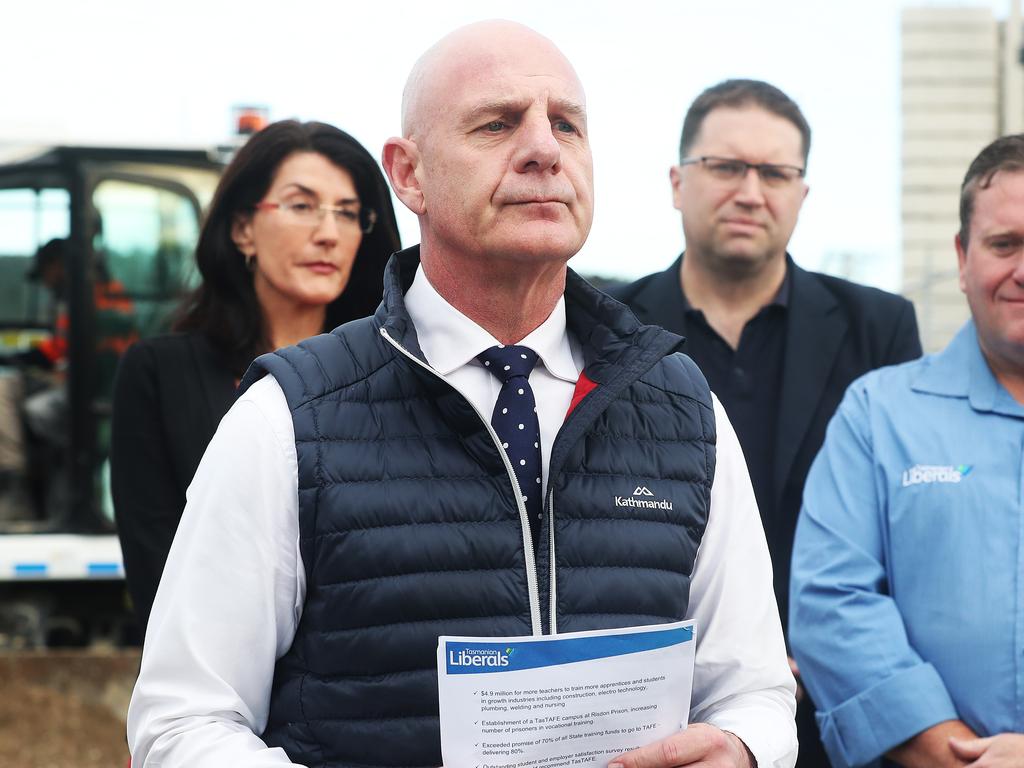States resist Scott Morrison’s push for home quarantine for returned travellers
Scott Morrison pushes premiers for a bolstered home quarantine system as he prepares nation for overseas travel by Christmas.

Scott Morrison faces resistance from the states as he seeks their approval for a bolstered home quarantine system and tries to prepare the country for essential travellers heading overseas by Christmas.
With national cabinet returning to a “warlike footing” on Monday, meeting twice a week to get the delayed vaccine rollout back on track, Health Minister Greg Hunt also revealed there could be onshore manufacturing of mRNA vaccines such as Pfizer and Moderna to protect against COVID-19 within a year.
He said there was “very high interest” from CSL and a wide range of other companies, which he would not name because of commercial disclosure requirements. He said the government was already working on a business case after Home Affairs Minister Karen Andrews declared an mRNA manufacturing plant could “absolutely” be built here.
The Prime Minister has begun laying the groundwork to get state premiers and Australians used to the idea of travellers going overseas for work, medical or compassionate reasons and using home quarantine on their return.
Amid warnings there could be more than 1000 new coronavirus cases each week once international borders are lifted, West Australian Premier Mark McGowan, who has had the toughest domestic border conditions in the country, said his government would “need a lot of convincing to move away from (hotel quarantine) for anyone but the most compassionate cases”.
“We are a strong supporter of formal, secure quarantine. It’s a good system to keep returning Australians in secure, supported accommodation,” his spokeswoman said. “The issue of international borders … is the federal government’s responsibility and is yet to come to national cabinet, but we are always guided by the health advice.”
Victorian Health Minister Martin Foley said the state would rely on advice from public health experts and had “no plans to move towards a home quarantine system at the moment”.
“Our plans are all around making hotel quarantine as safe as it can possibly be,” he said.
“If the commonwealth government is proposing to introduce home quarantining, I look forward to the proposal being backed by public health experts — that’s who I’ll be listening to.”
The country is about to surpass 1.5 million vaccinations — more than 643,000 have been administered by the states and more than 852,000 by the commonwealth — which is a fraction of the four million people the government hoped would be vaccinated by March.
As international supply issues and medical advice slow the rollout, Mr Morrison said he was in “no hurry” to reopen the border.
He said he would act “very cautiously” by taking “small steps” and a home quarantine program would have to be “as effective” as those used in hotels. “If we can get ourselves in a position, perhaps in the second half of the year, where Australians for essential purposes can travel and return to the country without going into hotel quarantine if they have been vaccinated, it is a good incentive to get vaccinated,” he said.
“That would potentially open the door later for returning Australian residents to have a successful home isolation quarantine.
“We have to make sure that would work and that would be as effective as the hotel quarantine.
“We’re simply doing the planning work, understanding what the health risks are, understanding how that can be successfully done, and in a few months from now, we’ll see where we’re at.
“We’re going to proceed very, very cautiously on those borders.”
Mr Hunt said the ACT’s home quarantine program, introduced to deal with Victoria’s second wave of COVID-19 last year, was the “perfect” model that included random police checks and telephone calls, as well as a daily online message service that asked after people’s physical and mental health.
The Prime Minister’s office on Sunday ruled out the use of ankle bracelets to ensure Australians remained in their homes.
Top of national cabinet’s agenda on Monday will be the vaccine rollout for 50 to 70 year olds and the under 50s, who could be vaccinated through large centres.
The federal and state governments have been forced to recalibrate plans after it was recommended that Pfizer become the preferred vaccine for under 50s because of the rare risk of blood clots associated with the AstraZeneca vaccine in that age group.
Victoria will resume providing AstraZeneca to under 50s who want to have it from Wednesday, citing “more workforce training, confirmation of assurance on provider indemnity and further consumer information now available” for the decision.
The commonwealth has ordered 20 million more Pfizer doses, due in the fourth quarter.
“I know some states are very interested in supporting larger vaccination programs now for people aged 50 to 70 and we are very open to discussing that with the states,” Mr Morrison said.
“But what I’d stress is that process would be to supplement, … what GPs are doing. It’s not a matter of moving doses from GPs to states and territory distribution, it’s a matter of using that additional state and territory opportunities that are there to add to the capacity for those populations.”
Tasmanian Premier Peter Gutwein, who goes to the polls on May 1, expressed concern at the lack of progress with the national vaccine rollout and backed states assisting with the federal immunisation program. “I am concerned with the delays and lack of communication from the federal government about their rollout for residents and staff at disability and aged-care residential facilities,” he said.
“I will be raising these concerns at national cabinet tomorrow as a matter of priority, including that the state is prepared to step in and assist the federal government with their rollout.”
Mr Hunt said onshore manufacturing of an mRNA vaccine was “the next phase”.
“We know we can do this as a country. I won’t put an exact timeframe but the companies we’ve been speaking to have said they would expect it would take the best part of a year; some may be able to do it earlier, some may take longer,” he said.
Business groups have endorsed lifting international border for essential travel and have called on national cabinet to set a clear timeline for the reopening against the vaccine rollout.
Businessman Andrew “Twiggy” Forrest” said: “I know first-hand how debilitating it is for those who must travel for business reasons, and in my case philanthropic reasons, to be put into (hotel) isolation.
“It is simply unjust for people who must travel to support their family or country to then be penalised when home quarantine can be just as secure, if not more secure.”
Opposition health spokesman Mark Butler dismissed Mr Morrison’s plan for a recommencement of global travel as “just another thought bubble”.
“What we need is a clear plan. He can’t even manage a hotel quarantine system properly, with national standards, with facilities outside of CBDs. I’m not sure Australians yet have faith in Scott Morrison, given the bungles he’s made of this rollout so far, to put in place a safe, effective home quarantine system,” he said. “Let‘s focus on the basics right now — getting vaccines into people’s arms, having a safe hotel quarantine system — and then let’s look at a plan for something else.”
Additional reporting: Paul Garvey, Tessa Akerman, Matthew Denholm








To join the conversation, please log in. Don't have an account? Register
Join the conversation, you are commenting as Logout